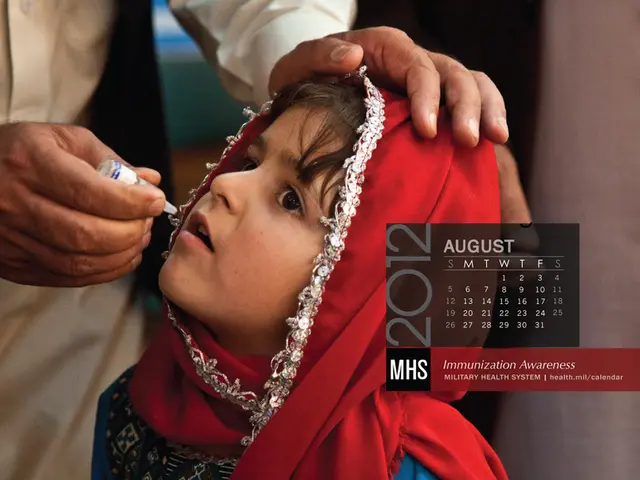U.S. Authorities Reference Non-Existent Research Findings
U.S. Government Report Allegedly Cites Non-Existent Sources on Child Health
Washington — The White House has faced criticism after allegations emerged that it cited non-existent sources in its "Make Our Children Healthy Again" (MAHA) report on child health issues. Investigations by the online magazine "Notus" and the "New York Times" discovered several questionable sources and discrepancies in the report.
The non-profit Allbritton Journalism Institute's publication, "Notus," claims to have found seven non-existent sources cited in the MAHA report. Three examples identified include epidemiologist Katherine Keys, who supposedly authored a study on youth anxiety but denied any involvement in the reported study, a study on advertising psychoactive substances to youth, which Virginia Commonwealth University stated was not conducted by one of the alleged authors, and a study on ADHD medication authored by "Shah, M.B." who does not appear to be a researcher in the field of ADHD.
In addition to these errors, "Notus" reported that many of the cited sources had been misrepresented, taken out of context, or contained broken links. Margaret Manto, one of the journalists responsible for the investigation, told Der Spiegel, "This is not about formatting errors, but serious flaws. The report would not pass a peer review."
When confronted with the allegations, the White House dismissed them as "minor citation and formatting errors." Despite this, the administration has since published an updated version of the MAHA report, removing the seven references to non-existent sources.
The MAHA report, released by the Trump administration, focuses on the root causes of childhood chronic diseases in the U.S., identifying factors such as poor diet, environmental toxins, overmedicalization, and exposure to ultra-processed foods as significant contributors to the declining health of American children. The report serves as a call to action, exploring the dietary, behavioral, medical, and environmental drivers of this crisis and establishing an evidence-based foundation for policy interventions and societal changes needed to improve child health.
The accuracy and reliability of the report depend on the rigor of the research and data it synthesizes, as it highlights the impact of processed foods, vaccines, and environmental chemicals on children's health. While it raises important issues, its conclusions and recommendations may be subject to scrutiny based on the sources and methodologies used.
- The allegations state that the White House's MAHA report, focusing on child health, cited Katherine Keys, an epidemiologist, as the author of a study on youth anxiety, but she denies any involvement.
- The Allbritton Journalism Institute's publication, "Notus," found a study on ADHD medication authored by "Shah, M.B.," yet no researcher by that name appears to be involved in the field of ADHD.
- The MAHA report's credibility is being questioned, as the report on policy and legislation for child health-and-wellness and mental-health, also covering general-news topics like science and politics, saw allegations of citing non-existent sources and misrepresenting information.








